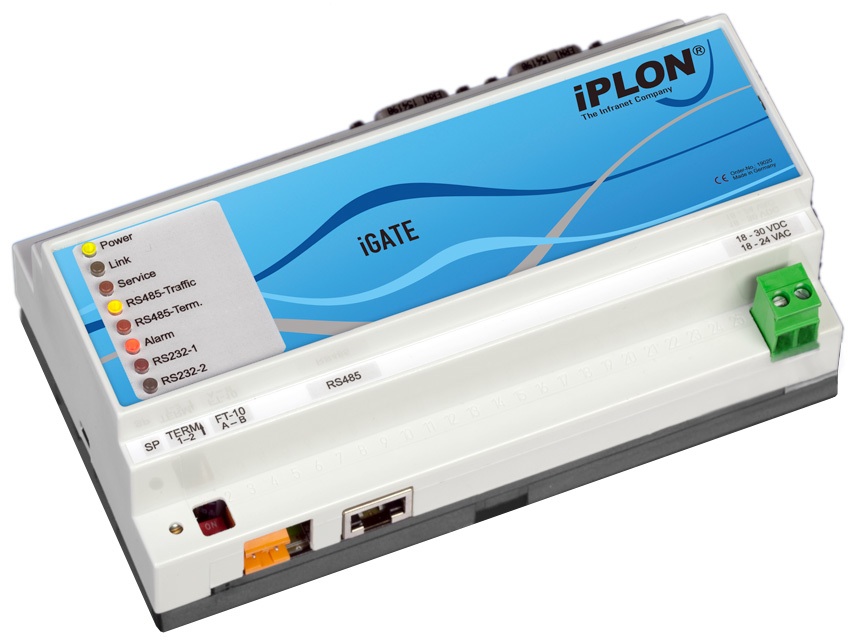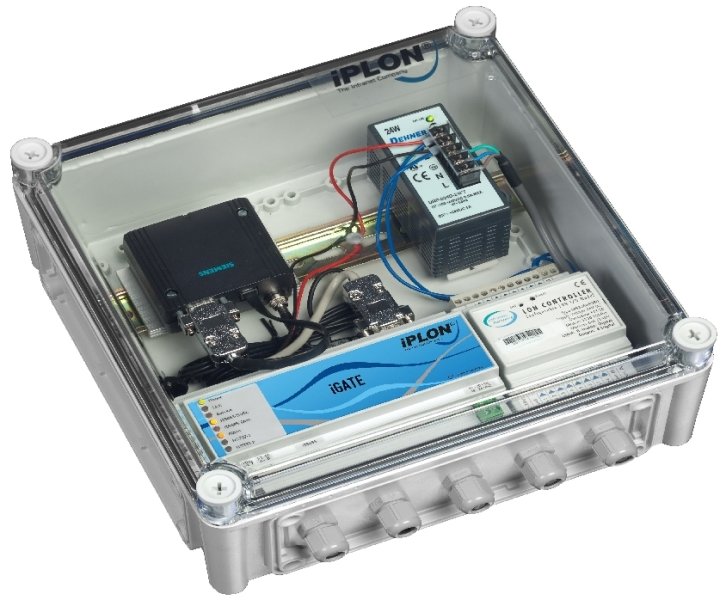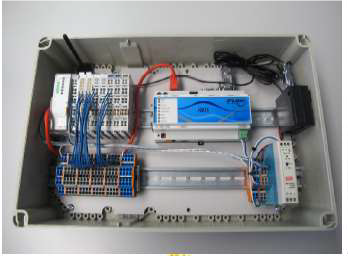Tamil Nadu leads the nation in the rooftop solar sector with more than 85 MW of solar installations. In light of this growth and the projected scope of future solar installations in the state, iPLON, has been strategizing its operations to have a large focus on the southern state. iPLON, an independent solar monitoring solutions provider based out of Schwäbisch Hall in Germany, and working across various countries in Europe as well as India, is keen on expanding operations in Tamil Nadu.
To facilitate this, iPLON has initiated Renewable Energy to Tamil Nadu (RE2TN.org) program to disseminate knowledge within the renewable energy domain. With the intention of transferring the knowledge they acquired over 15 years of experience in Germany to Tamil Nadu, iPLON has been conducting a range of workshops across various locations in India including Chennai.
iPLON has laid elaborate plans to organize training programs for PD, EPCs, conduct workshops and roadshows on ‘Smart Grid’ and ‘Smart City’ and partner with universities. In fact, they plan to partner with Anna University, Gandhigram Rural Institute, Musiri Institute of Technology, Government College of Technology (Coimbatore), and Madurai Kamaraj University to create training and awareness programs to address a variety of problems and issues concerning solar monitoring, grid stability, smart grids and energy management.
iPLON has completed around 1 GW of solar monitoring installations worldwide. They have a very focused business model and innovation is what drives them ahead. In India, they have partnered predominantly with Welspun renewables in the utility-scale segment and Amplus Solar in the rooftop solar segment.
Need for Superior Solar Monitoring Solutions
Solar plants are being set up at a frenetic pace, not just in India, but all around the world. With so many of these installations in place, Operations and Maintenance (O&M) of these plants will turn out to be a huge need in the future. If you think about it, it just takes 2 months to 1 year to design, construct and commission a solar power plant that is expected to last 25 years. So, ensuring that an effective O&M framework is in place, is what decides the future performance of these plants.
A premium solar monitoring solutions provider such as iPLON gains prominence in exactly such a scenario. They understand the importance of a multi-level approach to solar monitoring with monitoring data being measured at inverters, string monitoring units, weather stations and energy meters. Through its’ efficient performance monitoring, iPLON ensures that any under-performance of the plant is detected without delay and maintenance of the plant is carried out according to schedule.
iPLON offers two types of monitoring solutions:
- Remote Monitoring (Cloud based)
- On-site Monitoring (SCADA based)
iPLON’s monitoring products are compatible with all brands of inverters, weather stations, string monitoring units, energy meters etc.
Products and Innovations
iPLON offers a wide range of embedded devices and other products as part of its monitoring solutions. Some of the products are discussed below.
iGATE, the data logger used for solar monitoring, forms the core of their iPLON’s solar monitoring solution.
iBOX is an integrated input-output module that allows you to connect various sensors to the iGATE. This has been developed for rooftop applications.
One recent innovation that iPLON is proud to present is the iPLON Magic Box which is an interface between the solar power plant and the energy utility. This is a step in the direction of addressing grid instability issues created by renewable energy technologies. Through power factor correction and signal conditioning, this device contributes to grid stability.
|
The highlight of iPLON’s latest innovations is the Distributed Data Center. Through this platform, for Big data, Analytics, machine learning, they plan to provide advanced analytics, visualization and evaluation of solar power plants to be able to detect degradation of the plant during the life cycle. This will be available in Q4 of 2016. |
Interview with the Founder
Solar Mango, recently conducted an interview with Victor Thamburaj, CEO and Founder of iPLON Gmbh. Victor is an alumnus of the Electrical Engineering department of the prestigious Indian Institute of Technology, Madras. A Q&A session which highlights his motivation, ambitions for iPLON and plans for growth in Tamil Nadu, has been provided below.
- What are your plans and ambitions for iPLON in India?
Different people working at iPLON have different goals. My simple goal is to bring as much renewable energy as possible to Tamil Nadu through the concept of RE2TN. To be able to do that and sustain, we have to do other projects in monitoring and control to ensure that there is money flowing or a constant revenue stream. Coming from top down, among the things that we want to concentrate in the future are smart cities, smart metering, energy efficiency and smart grids. Essentially, everything to do with decentralized renewable energy, local consumption and transmission, grid stability for Tamil Nadu, and thereby enhance their strength in a post-carbon society.
- Apart from being a solar monitoring solutions provider, do you plan to diversify into other Renewable Energy (RE) sectors?
Yes, definitely yes. The reason we haven’t been doing much in those segments is because we want to create credibility for our company, especially in Tamil Nadu. That’s the reason we are focusing mainly on solar PV as we already have the much-needed knowledge base in this sector through years of industry experience and research. We have a lot of partners in wind, biogas and other RE sectors in Germany. So, once we establish that sort of credibility in Tamil Nadu, we will enter the other RE segments.
- Since you understand both the Indian as well as German markets, could you tell us what difference you see as part of implementing your technology in both markets and what are the obstacles that you have faced?
One of the benefits associated with Germany is that they spend a lot of money on R&D. They have spent around $15 billion in order to get PV panels, production machines and other technologies, which has seen its results with Germany becoming the leading solar PV market. Currently, they are investing a lot in storage systems, not just in batteries but also other storage concepts, and this will definitely see results in the next 5 years.
This is far from true in Tamil Nadu, where we still lag behind in R&D. I believe that only through R&D, that is, making mistakes and learning can you build up real knowledge. I have seen a big gap in the knowledge available in Germany and that is available in India. So, essentially, there is a lot of knowledge that can be transferred from Germany to India. This is one reason why iPLON has been taking young people to Germany so that they can bring this knowledge back to Tamil Nadu.
- What are the implementation issues that you foresee as part of realizing your plan for Tamil Nadu?
I feel there are 3 important issues in this regard. Firstly, there is this need to create awareness that a part of the energy crisis could be met by renewable energy. When companies as well as people, especially in the rural areas, don’t realize this fact is one problem hampering any implementation plans.
Secondly, there is a general opinion that finance is difficult. But, in my honest opinion, there is enough money available but not as much money is being used for investments in renewable energy as much as in other sectors.
And thirdly, there is a need to train people so that good implementation can be done.
So, if all these three obstacles are solved, I think things will get moving.
- The customers in the rooftop segment prefer just a basic inverter level monitoring system. Moreover, in case they go for a premium monitoring solution like iPLON’s, higher cost structure can be a barrier. How do you plan to mitigate this problem?
I think in about 2 years we will really face this issue, especially the price barrier. So, until then we plan to have a complete open-source system so that anyone can take the software and similarly also use an open-source hardware by which some drivers can be taken from us and their own system can be made. We are looking at the possibility of giving other companies an opportunity to start a similar business like iPLON’s and utilize this platform so that other interested companies can create their own open-source hardware and software.
- How would you differentiate iPLON from other companies? What would you say is your USP?
We try to ensure that the owner of the plant makes money so that all the plants don’t get sick, as in, it doesn’t perform badly. We sincerely aim to give the end-user the comfort that we will look after his plant and troubleshoot any problems associated with the system which may or may not be in our scope of work.
Interested in iPLON solutions? Please contact Mr. Gowrishankar.
Email: gowrishankar@iplon.de
Ph: 9884845835
 Skip to content
Skip to content



